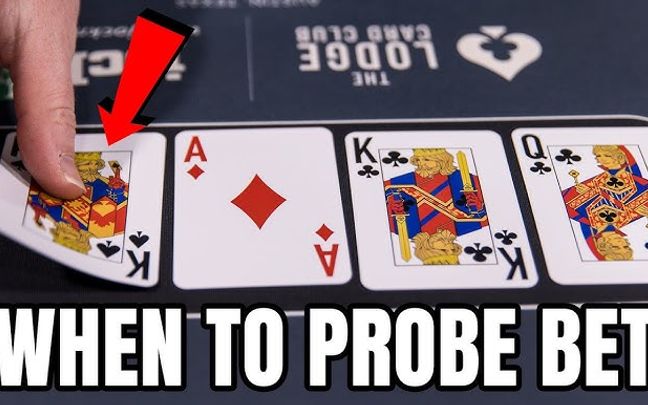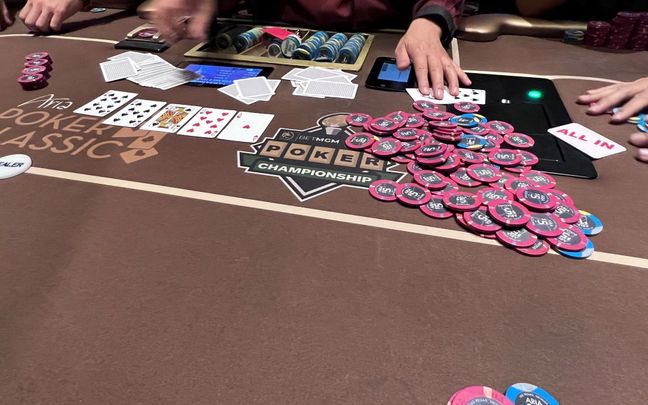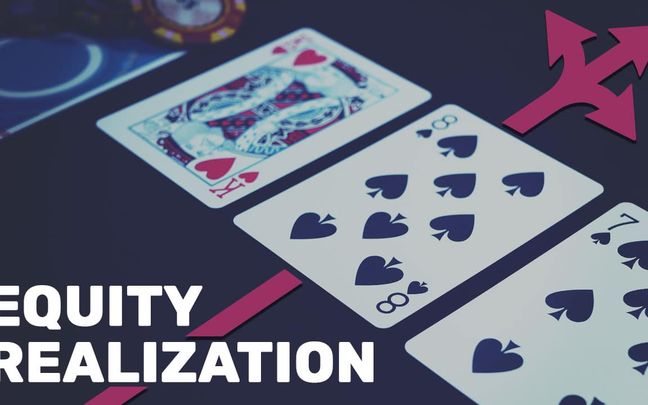Variance in poker refers to the random fluctuations in outcomes for each hand, influencing your chances of winning or losing in the short term. While skill plays a crucial role, variance can lead to significant swings in results over time. This article will provide you with a deeper understanding of variance and its impact on poker strategy.

What is Variance in Poker?
Variance in poker (also known as volatility) is a critical concept that helps you understand the random fluctuations in the outcomes of individual hands, regardless of how strong your strategy might be.
In simpler terms, variance in poker refers to the changes in results over time. Even with a solid strategy and sound decision-making, short-term outcomes can still be significantly influenced by random factors. Variance reflects the extent to which your results can deviate from the expected outcomes of an ideal strategy within a specific period.
In summary, understanding variance in poker is essential for managing both emotions and finances during gameplay. It explains why you might experience unexpected wins or losses in the short term, even when playing reasonably and adhering to a well-thought-out strategy.

Managing Variance in Poker
The random fluctuations in poker outcomes, known as variance, are a challenge every player must face. Understanding and managing variance effectively not only helps maintain your composure during setbacks but also ensures the longevity of your strategic play.
Recognizing Win-Loss Ratios
One of the most important aspects of poker is understanding that no matter how strong your strategy, you won’t win every hand.
Variance in poker is an uncontrollable factor that can lead to losing streaks even when making correct decisions. This is especially evident in variations like Texas Hold’em, where your decisions are heavily influenced by community cards and the random nature of the dealt hands.
By understanding win-loss ratios and the impact of variance, you’ll find it easier to accept temporary setbacks without losing confidence in your abilities.
Accepting Fluctuations
Variance in poker is beyond your control. No matter how perfect your strategy, individual outcomes can still change abruptly.
While you can minimize the impact of variance by playing a sound strategy, you cannot avoid unfavorable streaks or hands entirely. Accepting these fluctuations not only helps you stay emotionally steady during tough times but also fosters patience and commitment to your long-term plan. This mindset will allow you to navigate difficult phases without compromising your mental game.
Bankroll Management
An essential part of playing poker sustainably is managing your bankroll effectively. With high variance, you must ensure that your funds can withstand losing streaks and enable you to continue playing in the long run without financial stress.
Experts recommend allocating only a small portion of your total bankroll to high-stakes games, reducing financial risk during extended losing streaks. A solid bankroll management strategy ensures stable gameplay and increases your chances of long-term success.
Long-Term Analysis
While variance can make short-term results unpredictable, a sound strategy gives you an edge over the long run.
To assess your success, focus on long-term performance rather than individual hands or daily results. Analyzing long-term trends helps you understand the effectiveness of your strategy and accurately measure your progress in the game.
Short-term losing streaks are not decisive; what matters is your ability to consistently follow your strategy and improve your skills over time.
To succeed in poker, accepting and managing variance is indispensable. By understanding variance, you can play with patience, intelligence, and resilience, ultimately maximizing your chances of long-term success.

Factors Contributing to Variance in Poker
Several factors can increase variance in poker, including:
Opponent Skill Levels
The ability of your opponents plays a significant role in increasing variance. If your opponents employ irrational strategies or frequently make aggressive bets with weak hands, the outcomes can become highly unpredictable, resulting in increased variance. Such players can cause unexpected losses due to their erratic and unanticipated decisions.
Variations in Poker Formats
Variance also varies across different poker formats. For instance, in multi-player games like Texas Hold’em, the randomness of community cards heavily influences the outcomes of hands. Meanwhile, in variations like Omaha, the combination of multiple hole cards introduces even more randomness, amplifying variance.
Betting Decisions and Bet Sizing
Your own betting decisions and bet sizes also impact variance. For example, playing too many hands with large bet sizes increases the volatility of your results. Conversely, adopting a cautious approach and controlling your bet sizes can help reduce variance.

Variance in poker is an unavoidable factor, and understanding it provides a more realistic perspective on the game. The key is not to let short-term winning or losing streaks influence your strategic decisions. If you play well and stick to a solid strategy, your long-term results will ultimately reflect your true skill level.





























